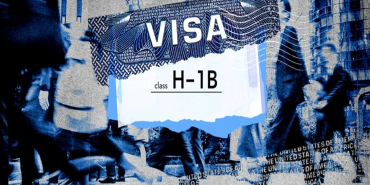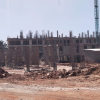US Immigration Officials Intensify Scrutiny of Marriage-Based Green Card Applications

The path to permanent residency in the United States through marriage is becoming increasingly challenging, with recent policy changes leading to more rigorous vetting of applications.
Under the current administration, immigration officials are conducting more in-depth evaluations, signalling a shift from the perceived leniency of the previous administration. While interviews have always been a standard component of the marriage-based immigration process, attorneys report a notable increase in scrutiny. Immigration officials now demand comprehensive documentation that provides meticulous details about the authenticity of relationships, including seemingly minor aspects of spouses' daily lives and medical conditions.
Attorneys also report a rising trend in requests for additional evidence, indicating a broader pattern of increased vigilance. A pivotal step in securing permanent residency is the interview process. Immigrants residing outside the United States must undergo questioning at a US consulate, while those already living within the country, such as individuals on work visas, must apply for an adjustment of status and attend an interview with the United States Citizenship and Immigration Services (USCIS).
Legal experts caution that applicants should prepare for rigorous questioning and ensure their documentation is thorough. Immigration attorney Ashwin Sharma notes that officials are exercising greater discretion during evaluations and conducting more extensive verification procedures. The scrutiny appears to be shifting toward deeper investigations into couples’ relationships, with an increased emphasis on assessing their shared intentions, ongoing commitment, and overall authenticity.
Since US citizen spouses are prohibited from attending consular interviews, the burden of proof rests entirely on documentation. Immigration officials require tangible evidence that demonstrates a genuine relationship, including records of communication, travel histories, financial interdependencies, and joint responsibilities. Snehal Batra, managing attorney at NPZ Law Group, advises applicants to compile extensive proof, including receipts for shared financial transactions, phone call logs, photographs, joint bank accounts, and life insurance policies.
Additionally, applicants must be ready to answer detailed questions about their spouse's career, earnings, educational background, and any past marriages. Authorities warn that if an application is denied due to suspected marriage fraud, the immigrant spouse may face deportation proceedings. Thus, establishing a well-documented, transparent history of the relationship is essential. The evolving landscape of US immigration underscores a broader trend toward heightened scrutiny, reinforcing the need for thorough preparation and adherence to updated regulatory standards.
In contrast, the previous administration had introduced measures aimed at streamlining the residency application process for certain undocumented spouses of US citizens. While those policies did not broaden eligibility, they sought to reduce bureaucratic hurdles, including eliminating the requirement for applicants to leave the country during the process. Recent developments, however, suggest a return to more stringent vetting procedures, marking a significant policy reversal.
Immigration attorneys emphasise that applicants should anticipate meticulous reviews and increasingly detailed documentation requirements as officials enforce tighter controls.














Add new comment